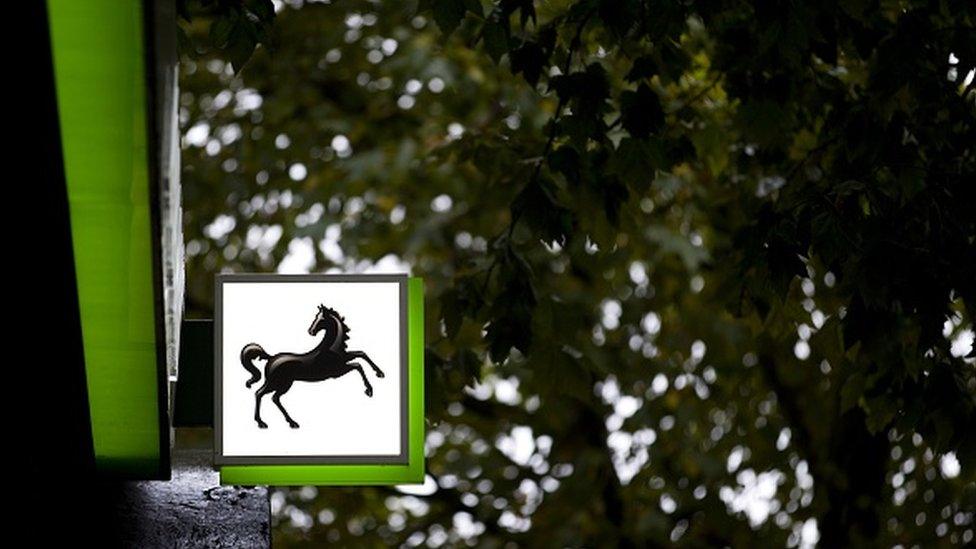Lloyds settles taxpayer tab
- Published

Lloyds banking group has finally settled its tab with the taxpayer.
The government sold its last shares today, nine years after it sank a total of £20bn into the beleaguered lender in the depths of the financial crisis.
The government is expected to make a profit of around £500m. That sounds a lot but is not a great return on an initial outlay of £20bn over nearly a decade.
But this wasn't an investment - it was a rescue of a bank that had made a bad situation much worse by agreeing to take over its more toxic rival HBOS.
Pressure
Lloyds had always been a boring bank - a quality which would have spared it the worst of the crisis had it not agreed to saddle itself with the fallout from years of risky commercial lending by HBOS, which turned sour in the great downturn.
That decision was widely thought to have been taken under pressure from Gordon Brown's government, who hoped that a takeover could help HBOS avoid a government bailout.
It didn't pan out like that, and the merger eventually cost chief executive Eric Daniels and chairman Sir Victor Blank their jobs.
Antonio Horta Osorio talks to the BBC's Simon Jack
They are both due to give evidence in an upcoming court case brought by Lloyds shareholders who claim they lost out as a result of the doomed merger.
The years in between have been marked by criminal scandals and £17bn of PPI mis-selling but the bank is now making healthy profits and paying dividends.
Mixed bag
The government has had mixed success with its bank rescues.
It still owns 73% of RBS which is still losing money all these years later.
The Chancellor Philip Hammond recently hinted that he would be prepared to start selling off those shares at a loss.
You win some, you lose some.